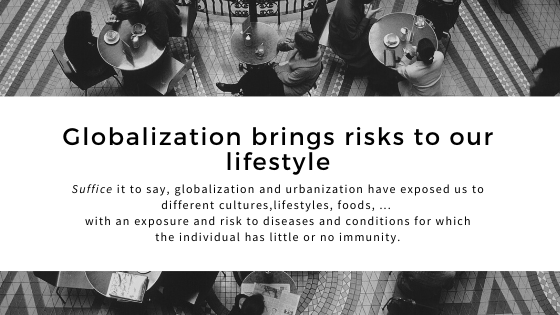
Some sobering statements are made on the BBC World Service Business Daily Podcast, March 13, 2020. Dr Juan Lubroth, former chief officer at the UN Food and Agriculture Assoc in Rome notes:
“We should stop treating pandemics as a “one-off event” and, “This is very much part of a longer-term pattern we should be starting to recognize as part of the future and not deal with every single one as an independent thing.”
And, James Gallagher states “the coronavirus is not going to disappear”, BBC News 20 March 2020.
Why the change and why now?
Demographics of the world have changed – since the early 1990’s when the internet started to take-off, humans have become increasingly global. Communication is now global with an increase in global travel – travel to countries once described as third world where a civilized person would previously never think of visiting, is now common and travel occurs daily.
Over the last 20 years, we have introduced to the world a host of new diseases – Ebola, SARS, ZIKA, HIV, swine flu, bird flu, West Nile fever, etc. An increase in new diseases is brought on by our societal globalization and also, more people are now living in urban centers. The closeness of humans increases the opportunity for diseases to manifest and spread more rapidly among the population.
More reasons for recent pandemics are given in the podcast, including the relationship humans have with animals – wild and exotic animals, which are viewed by some cultures as a status of wealth. Whether the animals are for display or consumption, the relationship with animals has created the potential for previously unknown diseases. This environment creates a massive scientific and societal challenge for individuals, governments and society.

Kommentare